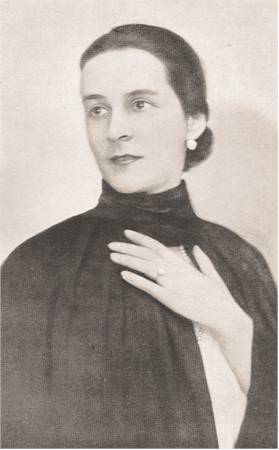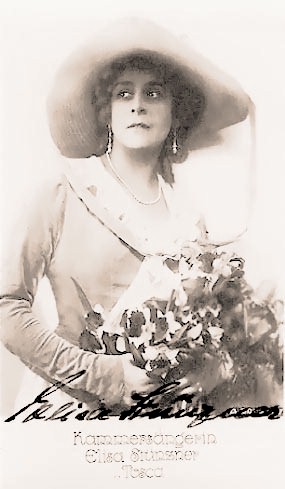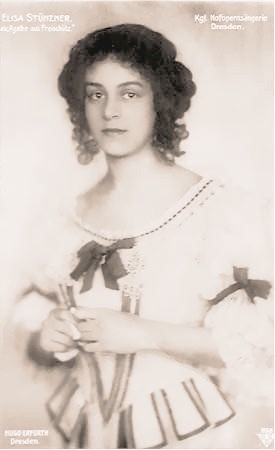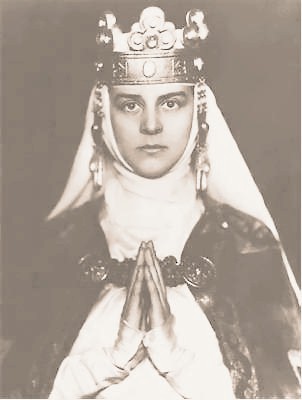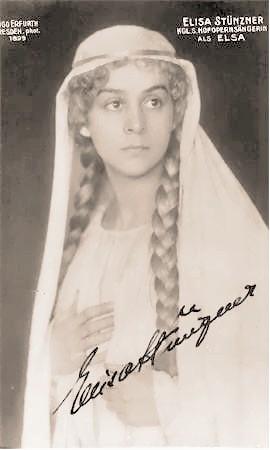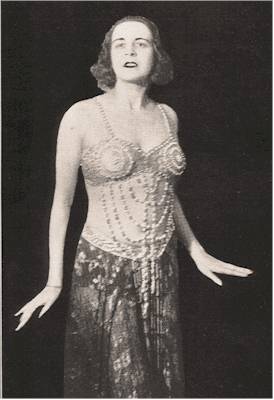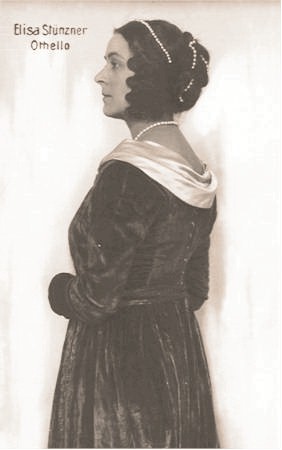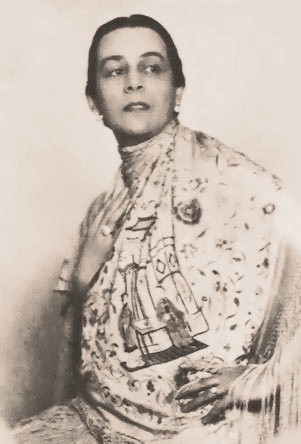German soprano, 1886 - 1975
One of the great sopranos at the Dresden Opera Biographical notes: After studies at the Leipzig Conservatory Elsa Stünzner was taught by the well-known vocal teacher Dora Erl at Dresden. She made her early debut, still as a volunteer, at the Dresden Hofoper in 1909 where she sang the Shepherd Boy inTannhäuser. She joined the company of the Dresden Hofoper (later Staatsoper) remaining there until her retirement in 1935. Her first performance as a regular member was as the Milliner at the first performance of Der Rosenkavalier (1911). The Dresden public was fortunate to have some of the finest sopranos of the 20th century: Meta Seinemeyer, Margarete Teschemacher, Elisabeth Rethberg and Maria Cebotari. Nevertheless, Stünzer’s interpretations of the operas by Richard Strauss were considered unequalled by the Dresden public. The composer himself was a great admirer of her (he called her “my favorite Salome”), and it was he who encouraged her to sing the role at the Vienna State Opera (1927/28). Strauss also invited her to sing Salome at the 25th-anniversary performance of the opera in Dresden. Stünzner’s roles included Diemut in Feuersnot, Octavian, the Composer in Ariadne auf Naxos and the Dyer’s Wife in Die Frau ohne Schatten. Her Italian repertoire included Tosca, Aida, Desdemona, Mimì and Butterfly. She was greatly admired in Wagnerian roles such as Senta (!), Eva, Sieglinde, Elsa and Elisabeth. She was appreciated in Mozart roles appearing as Pamina, Cherubino and Countess. During her career she took part in an impressive list of world premieres: In Krenek’s Jonny spielt auf, Weill’s Der Protagonist, Jan Brandts-Buys two operas Der Eroberer and Traumland, Kaminski’s Jörg Jenatsch , Schattmann’s Die Hochzeit des Mönchs, Hindemith’s Cardillac and in d’Albert’s posthumously performed Mister Wu (1932). Elisa Stünzner was a superb Lieder singer, performing not only popular songs by Schubert, Brahms or Strauss but also works by Reger, Wolf and Krenek. After retirement she became a professor at the Leipzig Academy of Music. After War she taught at the Carl-Maria-von-Weber Conservatory in Dresden where she was honored with the title ‘Ehrensenator’.
As Tosca (courtesy of Charles B. Mintzer)
As Agathe in Weber’s Freischütz
As Elisabeth in Tannhäuser
As Elsa in Lohengrin
(courtesy of Charles B. Mintzer)
Elisa Stünzner was Richard Strauss’ favorite Salome
As Desdemona (a role ideally suited to her) Comment: Elisa Stünzner’s was a voice of great beauty. The voice had what the German people call ‘Innigkeit’. The creamy, almost tender sound of her voice was quite extraordinary. Unfortunately, there are but a few recordings by this fine artist. Release on Compact Disc (PREISER) strongly recommended. In the following clip we can listen to an exquisite lieder singer. Her marvellous legato and the pianissimi were particularly fine.
My warmest thanks to Charles B. Mintzer
|
|||||||||||||||||||
